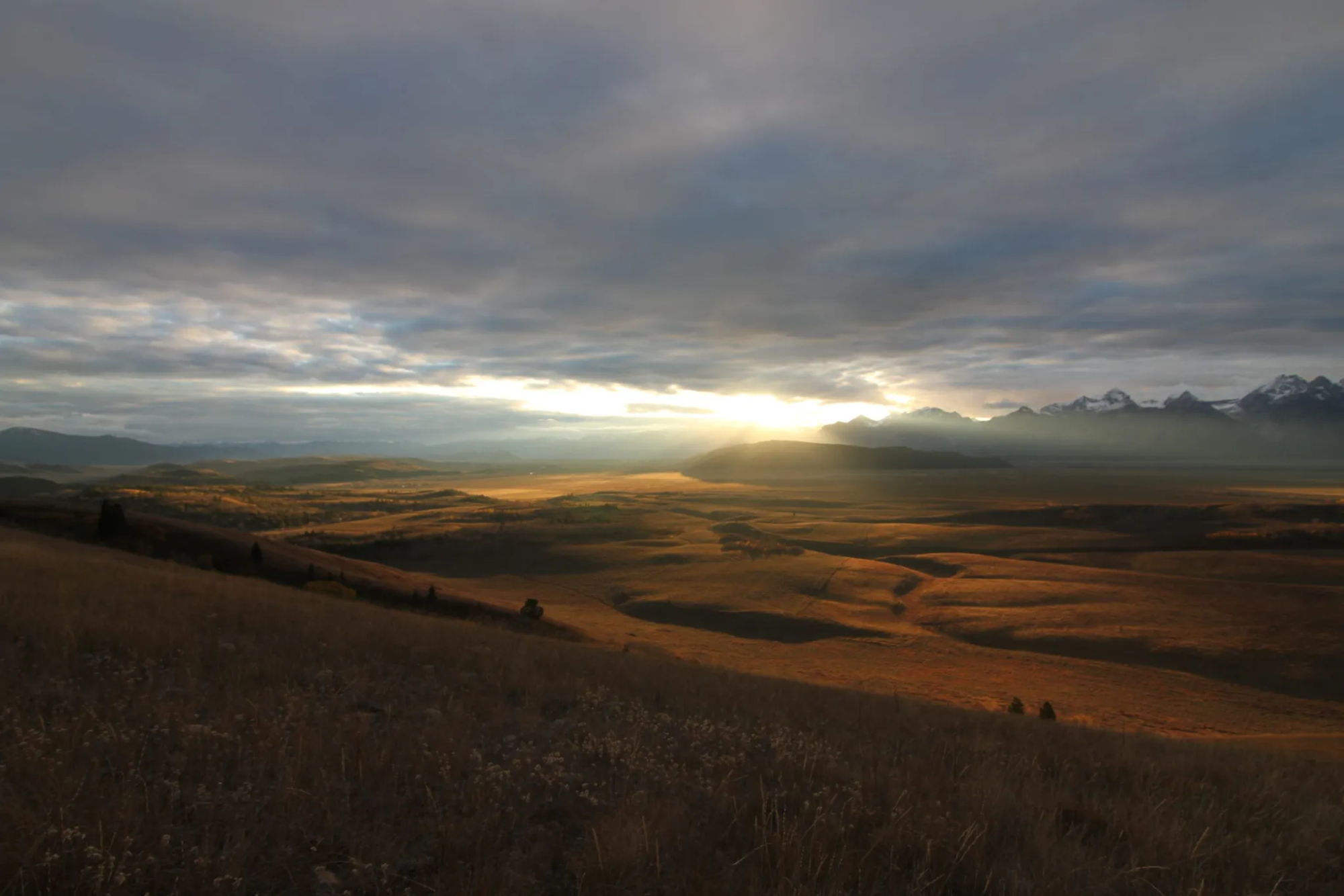
In a gambit that could see Wyoming’s 640 acre Kelly Parcel protected from development through a sale to Grand Teton National Park, Wyoming will consider using the proceeds to buy $162 million worth of federal Bureau of Land Management acreage in the Powder River Basin.
The State Loan and Investment Board should “begin a process to identify federal lands within the Powder River Basin for acquisition,” a memo from the acting director of the Office of State Lands and Investments recommends. Acting director Jason Crowder further recommended that the board authorize him to initiate “a land acquisition process” with the BLM.
Wyoming’s top five elected officials, Gov. Mark Gordon, Secretary of State Chuck Gray, Treasurer Curt Meyer, Auditor Kristi Racines and Superintendent of Public Instruction Megan Degenfelder, meet as the State Loan and Investment Board at 8 a.m. Thursday. They are scheduled to consider Crowder’s recommendation at that time.
Upon conclusion of that meeting, the same five officials are scheduled to reconvene as the State Board of Land Commissioners to consider the sale of the 640 acre Kelly Parcel, located inside Grand Teton National Park, to the park.
The $162 million would come from the proposed $100 million Kelly Parcel sale and three already completed sales of other Wyoming school trust parcels in Grand Teton.
Purchase of federal Powder River property would curry a burr from under the state’s saddle; Wyoming politicians have long been chaffed by the federal government’s ownership of 48% of the state’s land.
Selling yet more — the Kelly Parcel — to the feds would aggravate that itch. Superintendent Degenfelder this week questioned why Wyoming would sell its 640 acres near Kelly instead of exchanging it for federal Powder River property.
At issue now is whether an effort to buy federal Powder River property would placate Degenfelder and other critics of the effort to incorporate the Kelly Parcel into Grand Teton where it would be conserved.
A ‘permissible investment’
Crowder’s memo — part of the Loan and Investment Board agenda and meeting materials — suggests that pursuing federal land in the Powder River Basin is a “permissible investment” under state law.
When deemed beneficial to trustees of state trust lands — principally school children — “the state treasurer shall invest funds received from the sale of state trust lands to the federal government by purchasing federal lands and improvements within Wyoming from the federal government,” the statute reads.
The board must find that buying federal Powder River land is “consistent with the duties and obligations owed to the beneficiaries of … state trust land.” Upon that finding, the board could use that money to try to buy federal property.
“[S]hould the Kelly Parcel be sold to the federal government pursuant to House Enrolled Act No. 50, the amount available for a purchase of federal land would be … $162,002,000,” Crowder wrote.

Wyoming sold a 40 acre state inholding in Grand Teton to the federal government in 2012 for $2 million. It sold 86 acres to the feds in 2013 for $16 million and the 640 acre Antelope Flats school section in 2016 for $46 million.
All the sales were outlined in agreements with the U.S. Department of the Interior hammered out in 2010 and revised in 2014, according to Crowder’s summary of the issue.
Adding those figures to the Kelly Parcel price brings the total to Crowder’s $162 million.
In a statement questioning the state sale to Grand Teton earlier this week, a transaction that could be all but completed at Thursday’s meeting, Degenfelder said she has been leading a task force that was focused on using the Kelly Parcel as a chip in a land exchange.
“The task force has identified well over 100,000 acres that could be acquired in the exchange for the 640 acre Kelly Parcel,” Degenfelder’s statement read. An exchange would preserve the Kelly Parcel while also “giving us ownership of developable lands that could produce income for generations to come.”
Value underground
There’s a vast amount of natural-resource wealth in the Powder River Basin, in the form of oil, natural gas and coal. The region is the nation’s single largest supplier of coal — a commodity that has served as Wyoming’s economic pillar for decades.
Though there are still mountains of coal underground there, it is quickly losing its value.
Powder River Basin coal is only profitable if it is mined at scale, which is why two of the largest coal mines in North America are located there. The operator of one of those mines, Arch Resources, made a financial decision years ago to close up its Black Thunder mine. That’s because the region’s only market is coal-burning power plants in the U.S., and utilities are retiring the nation’s fleet of coal plants without replacing them.
The demand for Powder River Basin coal is in a nosedive, declining at a rate of about 20% for the past year, according to federal data. The U.S. Bureau of Land Management also proposes to ban federal coal leasing in the area.
That means companies with existing federal leases may continue to mine their coal, but the federal government would not issue new leases.
—Dustin Bleizeffer contributed to this story